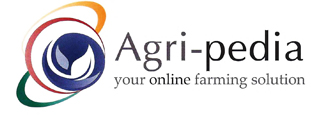Latest News Archive
Please select Category, Year, and then Month to display items
07 January 2018
Photo Charl Devenish
 Dr Anneke van der Spoel van Dijk is invested in contributing
to the global effort of stopping TB by 2035.
Dr Anneke van der Spoel van Dijk is invested in contributing
to the global effort of stopping TB by 2035.
The work of Dr Anneke van der Spoel van Dijk investigates the spread of TB in the Free State population using techniques such as next generation sequencing, spoligotyping and MIRU-VNTR typing. Dr Van der Spoel van Dijk, a senior medical scientist in the Department of Medical Microbiology at the University of the Free State (UFS) also looks at drug resistance in her research. This work informs decisions about how best to treat patients with multidrug-resistant TB (MDR-TB).
She employs rapid molecular techniques to track one of Africa’s most serious diseases, tuberculosis (TB).
Drug resistance
Scientists assist the National Health Laboratory Service and Department of Health in trying to refine the diagnostic tools to identify these cases earlier. Dr Van der Spoel van Dijk explains: “Until recently, it took up to two years to fine-tune treatment decisions for patients with MDR-TB. Patients get a cocktail of anti-TB drugs, but it takes time to find the right combination. Re-infection and relapse (patients stopping treatment for several reasons) add to the diagnostic and treatment management challenges.
Enormous impact
“Now doctors can reduce the time needed for diagnostic certainty to about seven days, while new drugs allow reduction of treatment from more than 18 to nine months. This can have an enormous impact on the life of many patients.”
Dr Van der Spoel van Dijk’s work forms part of research in the faculty looking at resistance development in TB strains. She is currently also doing her doctoral thesis on the differences and incidence of MDR-TB among adolescents versus adults. Dr Van der Spoel van Dijk says: “It is a complicated picture, but we hope to unravel it to support better diagnostic tools and patient care.”
As part of the National Health Laboratory Service, her department is playing an important role in TB diagnostics and the training of scientists and future pathologists. “Our work is contributing to the global vision to stop TB by 2035,” Dr Van der Spoel van Dijk says.
Agri-pedia a valuable tool for the farmer
2013-10-03
|
 |
| 03 October 2013 |
Agri-pedia, an internet-based facility to assist the farmer in a whole array of topics, was launched at the university.
This ground-breaking new education tool was developed by die UFS in partnership with the private sector to bridge the gap between agricultural science and successful farming. Experience of more than a thousand years is pulled together in the project.
Topics vary from farm management and planning, market information, geographic information and maps, to beekeeping, flower production, the farm home and many more.
Prof Jonathan Jansen, Vice-Chancellor and Rector, said at the Agri-pedia launch it is a myth that education only happen in schools. At Nampo he was amazed to see the level of education on farms, done by farmers. “Another myth is that education is the task of government – there is a tardiness and lack of concern.
“You don’t change schools with government, but with partnerships. Agri-pedia will not be possible without partnerships.”
The launch of Agri-pedia happened against the background that food security in the world is under threat. About 840 million people are chronically experiencing malnourishment. Included in this figure are 200 million children under the age of 15 in the developing world. By 2020 nearly 70% of people suffering malnutrition will live in sub-Sahara Africa and in South Asia.
The agricultural sector must be assisted to shift from subsistence farming to sustainable food production and economic development.
For more information, visit www.agripedia.co.za or send an email to admin@agripedia.co.za.